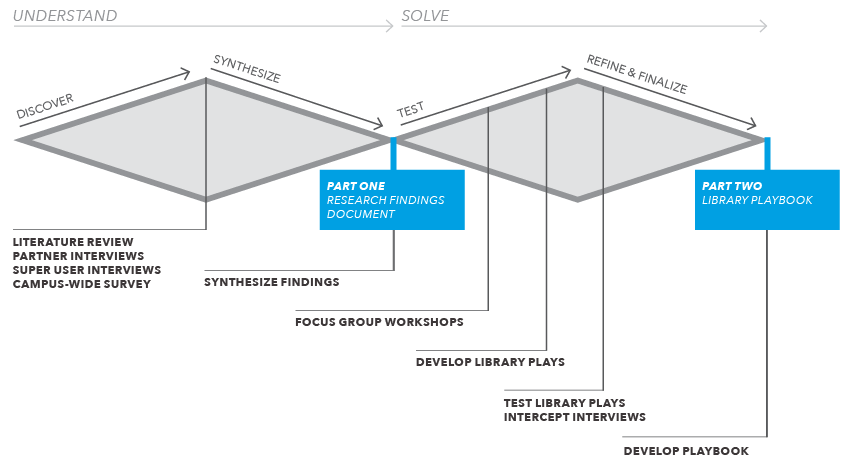Challenge
As the information landscape continues to change—from increased access to and decentralization of information sources to new digital user behaviors and expectations—libraries in particular are forced to evaluate and evolve their purpose for the communities they serve. Very much a conflict of tradition, there's much debate around the role libraries and librarians had and what role they should fill.
My role
While at brightspot strategy, I led engagements at four large-scale University libraries who were struggling with the challenges of an analog library serving the needs of the 21st century. I also taught a class at Parsons School of Design to focus on the needs of public libraries supported by digital experiences.
Outcome
There is not yet a perfect model for the 21st century library as much is still in flux around new methods and needs for research, teaching, and learning. The primary objectives are for the library to be flexible, agile, and responsive. A range of services, expertise, and tools to help serve new needs in digital scholarship are seen as essential in supporting today's users. Additionally, its role as a place for people and research to come together will continue to grow in value, much more than its role as a place for books.
I've helped define future library systems across a campus; identify new digital and physical services, staffing needs, space types and technology resources; and design the experience of multiple users through programming and blocking and stacking.
Playbook of Future Library Services @ UPitt
We created a series of "plays" or new service ideas for a library that would address specific needs and goals shared by their campus community.
Research Event Experience Prototype @ Harvard
Researcher Collaboration Platform Prototype @ Harvard
Blocking Plans Integrating Physical & Digital Scholarship @ UCSD's Geisel Library
Renovations to the 1st and 2nd floor will begin in 2019-2020 school year.

